Filter by

Holocaust Education : Contemporary challenges and controversies
Teaching and learning about the Holocaust is central to school curriculums in many parts of the world. As a field for discourse and a body of practice, it is rich, multidimensional and innovative. But the history of the Holocaust is complex and challenging, and can render teaching it a complex and daunting area of work. Drawing on landmark research into teaching practices and students’ knowle…
- Edition
- -
- ISBN/ISSN
- 9781787355699
- Collation
- 234p. ; ill.
- Series Title
- -
- Call Number
- 940.5318071 STU h
The nordic economic, social and political model : challenges in the 21st Century
The Nordic Model is the 20th-century Scandinavian recipe for combining stable democracies, individual freedom, economic growth and comprehensive systems for social security. But what happens when Sweden and Finland – two countries topping global indexes for competitiveness, productivity, growth, quality of life, prosperity, and equality – start doubting themselves and their future? Is the N…
- Edition
- -
- ISBN/ISSN
- 9780429026690
- Collation
- vii, 257 p.
- Series Title
- -
- Call Number
- 306.0948 KOI t
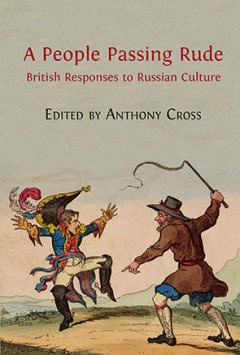
A people passing rude: British responses to Russian culture
Described by the sixteenth-century English poet George Turbervile as "a people passing rude, to vices vile inclin’d", the Russians waited some three centuries before their subsequent cultural achievements—in music, art and particularly literature—achieved widespread recognition in Britain. The essays in this stimulating collection attest to the scope and variety of Russia’s influence…
- Edition
- -
- ISBN/ISSN
- 9781909254121
- Collation
- xvi, 331 p.: illustrations
- Series Title
- -
- Call Number
- 947.084 CRO a
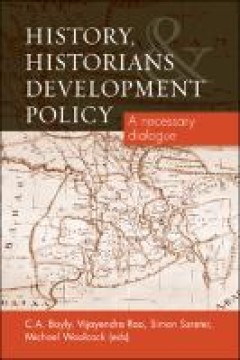
History, historians and development policy: a necessary dialogue
The substantive and methodological contributions of professional historians to development policy debates was marginal, whether because of the dominance of economists or the inability of historians to contribute. There are broadly three ways in which history matters for development policy. These include insistence on the methodological principles of respect for context, process and difference; …
- Edition
- -
- ISBN/ISSN
- 9781526151612
- Collation
- xii, 276 p. : ill.
- Series Title
- -
- Call Number
- 320.6 RAO h

A bowl for a coin : a commodity history of Japanese tea
A Bowl for a Coin is the first book in any language to describe and analyze the history of all Japanese teas. To understand the triumph of the tea plant in Japan, Wayne Farris begins with its cultivation and goes on to describe the myriad ways in which the herb was processed into a palatable beverage. Along the way, he traces the shift in tea's status from exotic gift item from China to its com…
- Edition
- -
- ISBN/ISSN
- 9780824876609
- Collation
- x, 227 p. : ill
- Series Title
- -
- Call Number
- 338.173720952 FAR a
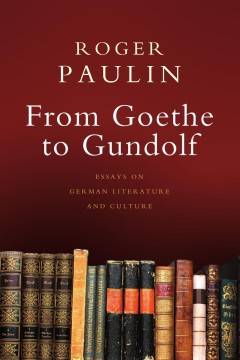
From Goethe to Gundolf: essays on German literature and culture
From Goethe to Gundolf: Essays on German Literature and Culture is a collection of Roger Paulin’s groundbreaking essays, spanning the last forty years. The work represents his major research interests of Romanticism and the reception of Shakespeare in Germany, but also explores a broader range of themes, from poetry and the public memorialization of poets to fairy stories - all meticulously r…
- Edition
- -
- ISBN/ISSN
- 9781800642140
- Collation
- 420 p.: colour, illustrations
- Series Title
- -
- Call Number
- 830.9 PAU f
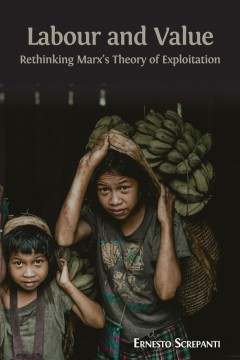
Labour and value : rethinking Marx's theory of exploitation
In this book Ernesto Screpanti provides a rigorous examination of Marx’s theory of exploitation, one of the cornerstones of Marxist thought. With precision and clarity, he identifies the holes in traditional readings of Marx’s theory before advancing his own original interpretation, drawing on contemporary philosophy and economic theory to provide a refreshingly interdisciplinary exegesis. …
- Edition
- -
- ISBN/ISSN
- 9781783747818
- Collation
- 144 p. : ill.
- Series Title
- -
- Call Number
- 179.8 SCR l
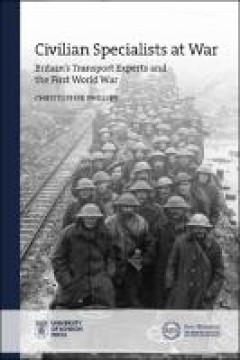
Civilian specialists at war : Britain's transport experts and the First World…
The war of 1914–18 was the first great conflict to be fought between highly industrial societies able to manufacture and transport immense quantities of goods to the field of battle. In Civilian Specialists at War, Christopher Phillips examines the manner in which Britain’s industrial society influenced the character and conduct of industrial warfare. This book analyses the multiple connect…
- Edition
- -
- ISBN/ISSN
- 9781909646926
- Collation
- xviii, 424p. : ill.
- Series Title
- -
- Call Number
- 940.421 PHI c

With and without Galton: Vasilii Florinskii and the fate of eugenics in Russia
In 1865, British polymath Francis Galton published his initial thoughts about the scientific field that would become ‘eugenics.’ The same year, Russian physician Vasilii Florinskii addressed similar issues in a sizeable treatise, entitled Human Perfection and Degeneration. Initially unheralded, Florinskii’s book would go on to have a remarkable afterlife in twentieth- and twenty-first-cen…
- Edition
- -
- ISBN/ISSN
- 9781783745135
- Collation
- xxv, 666 p. : ill. : ind. ; 24 cm
- Series Title
- -
- Call Number
- 363.92 KRE w
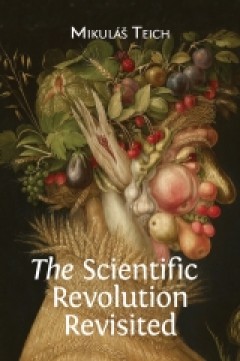
The Scientific Revolution Revisited
The Scientific Revolution Revisited brings Mikuláš Teich back to the great movement of thought and action that transformed European science and society in the seventeenth century. Drawing on a lifetime of scholarly experience in six penetrating chapters, Teich examines the ways of investigating and understanding nature that matured during the late Middle Ages and the Renaissance, charting the…
- Edition
- -
- ISBN/ISSN
- 9781783741243
- Collation
- ix, 146 p. : ill.
- Series Title
- -
- Call Number
- 509.409031 TEI t
 Computer Science, Information & General Works
Computer Science, Information & General Works  Philosophy & Psychology
Philosophy & Psychology  Religion
Religion  Social Sciences
Social Sciences  Language
Language  Pure Science
Pure Science  Applied Sciences
Applied Sciences  Art & Recreation
Art & Recreation  Literature
Literature  History & Geography
History & Geography